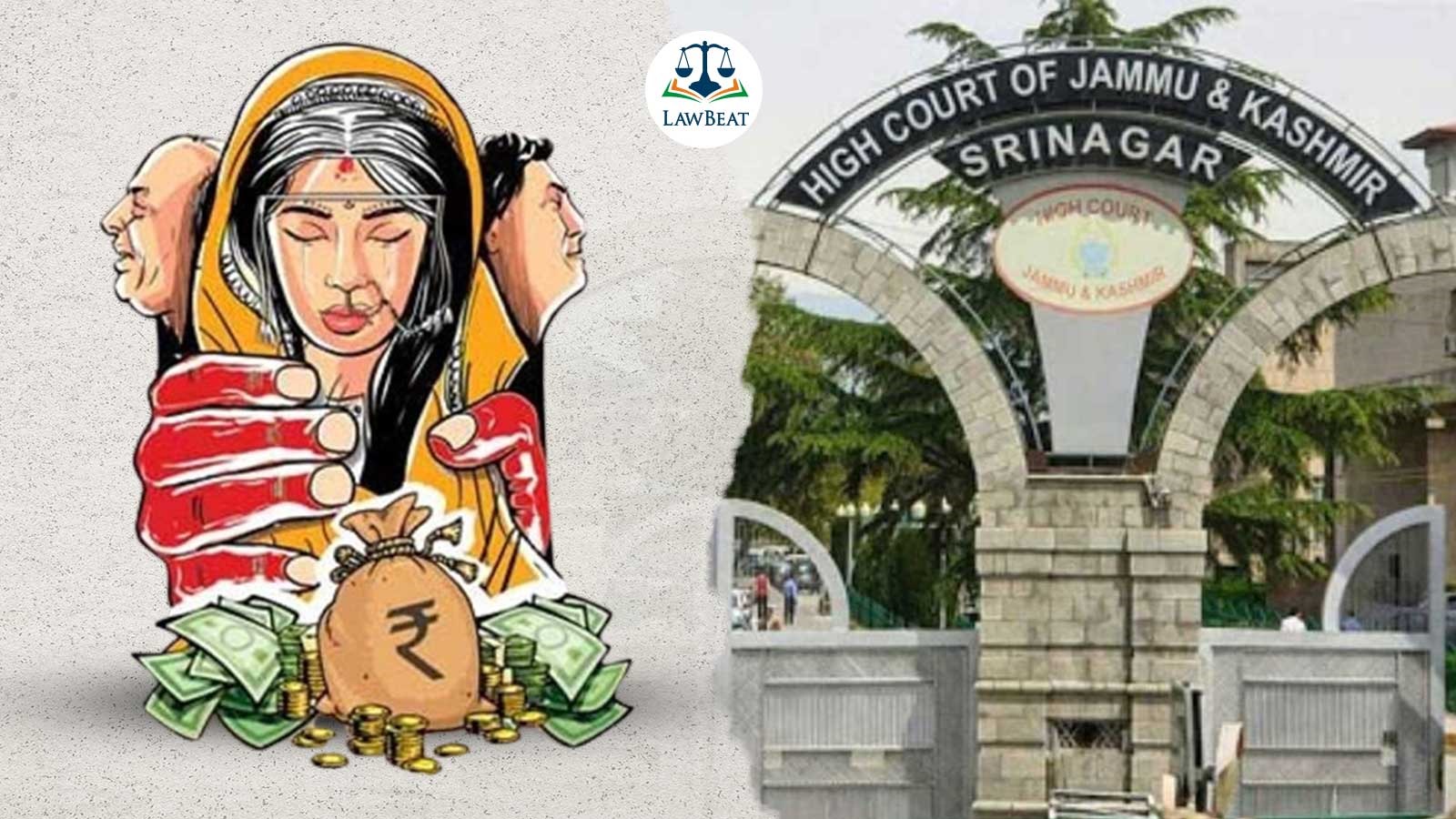Dowry Demand Without Repeated Harassment Not ‘Cruelty’ : J&K and Ladakh HC

The court overturned the trial court's conviction and acquitted the husband and his family, underscoring the need for clear and convincing evidence in cases involving allegations of dowry-related cruelty
The High Court of Jammu & Kashmir and Ladakh has ruled that a mere demand for dowry, without repeated harassment intended to coerce the victim into meeting such demands, does not constitute "cruelty" under Section 498-A of the Ranbir Penal Code (RPC).
The judgment was delivered by Justice Sanjeev Kumar, setting aside the conviction of Showkat Ahmad Rather (Appellant) under Section 498-A and 306 RPC by the trial court. The court noted “a simple demand of dowry without there being constant harassment to the deceased to coerce her to meet such demand does not amount to “cruelty‟ as defined under Section 498-A RPC.”
The case emerged following the death of a young woman who died under mysterious circumstances on 17th April 2006, reportedly due to consuming a poisonous substance. She allegedly faced dowry demands from her husband and in-laws. After her death, her family accused the husband and his relatives of subjecting her to cruelty and harassment, claiming that the dowry demands led to her untimely demise.
The Principal District Judge of Bandipora had previously convicted the husband and his family under Sections 498-A and 306 (Abetment of Suicide) RPC, holding them responsible for the victim's death. However, the husband and his family contested the conviction, arguing that the allegations were baseless. They maintained that the relationship between the appellant and the deceased was largely cordial, and no direct evidence of dowry-related harassment was presented. It was also argued that the prosecution failed to provide evidence substantiating the claim of continuous harassment or cruelty, as required under Section 498-A RPC. It was further contended that the trial court had not properly considered the lack of direct evidence linking them to the alleged acts of cruelty that supposedly led to the victim's death.
The court observed that "cruelty" under Section 498-A RPC necessitates sustained and continuous harassment aimed at coercing the woman into fulfilling unlawful demands. The Court emphasised that a simple demand for dowry, without accompanying persistent harassment, does not meet the legal criteria for a conviction under Section 498-A.
The Court also pointed out inconsistencies in the prosecution's case, particularly the lack of strong evidence proving that the victim was subjected to ongoing harassment by the appellants. While the testimonies from the victim's family were emotionally compelling, they did not sufficiently establish that the accused had harassed the deceased to a degree that constituted cruelty under the law.
With regards the conviction for abetment of suicide, the court observed that under Section 306 RPC, it is required for the prosecution to establish that the death was indeed suicidal and that the accused actively instigated or aided in the act. The court referred to Section 107 RPC, which defines abetment as an intentional act of instigation, conspiracy, or aid. The court found no evidence to prove beyond a reasonable doubt that the deceased had committed suicide due to abetment by the accused.
The court also considered the implications of Section 113-A of the Evidence Act, which allows for a presumption of abetment if a married woman commits suicide within seven years of marriage and has been subjected to cruelty by her husband or in-laws. However, the court clarified that this presumption is discretionary, not mandatory. In this case, the prosecution did not provide sufficient evidence to prove cruelty or harassment, and the court chose not to apply the presumption.
Given the lack of evidence to establish a clear connection between the accused's actions and the deceased's death, the court concluded that the conviction could not be sustained. The court, therefore, allowed the appeal, set aside the conviction, and discharged the accused's bail bonds.
Cause Title: Showket Ahmad Rather v State of Jammu & Kashmir [CRA No. 22/2013]
